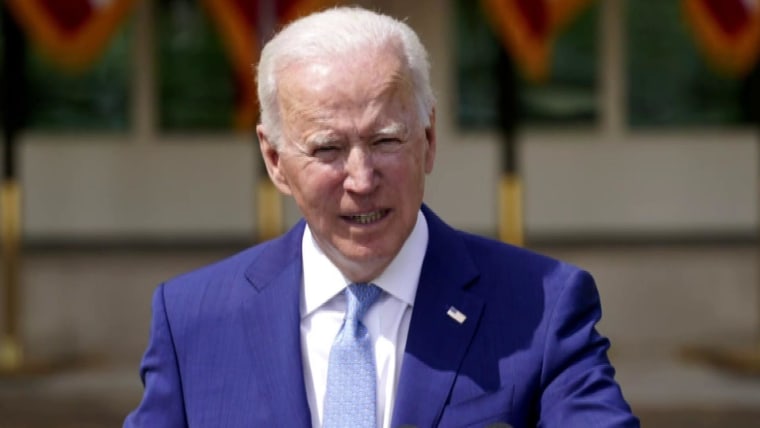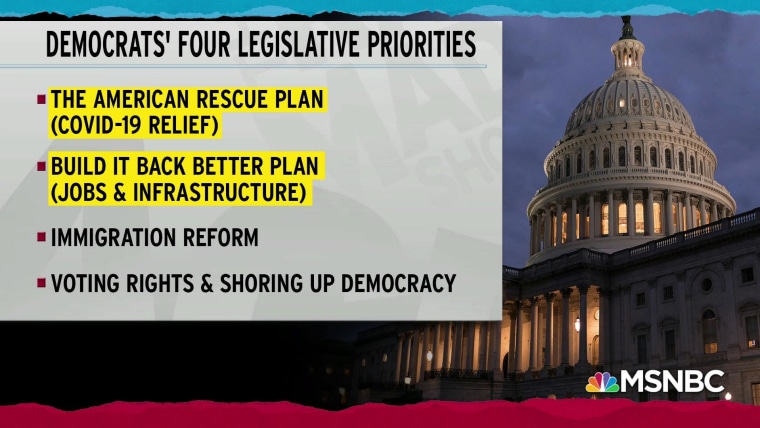President Joe Biden is submitting his first annual budget proposal to Congress on Friday, calling for an additional $5 trillion in federal spending over the next 10 years. It’s a number that takes into account both of his proposed infrastructure plans as well as other priorities for his administration.
If history is any indication, Biden’s budget blueprint will be received with a polite nod and thank-you from Congress. It will then be shoved into a drawer and almost entirely ignored.

And you know what? I think that’s exactly how it should work. The power of the purse is one of the few areas in which Congress has safeguarded the power enumerated to it under the Constitution, even as presidents have tried to push their own priorities ahead of its own. I just wish we would do away with even pretending like the massive tome that Biden sends to Congress really matters.
For the majority of time since the executive branch was established, the president actually didn’t have much say in the federal budget. The Cabinet departments would each submit their own funding requests to the multitude of appropriations committees in Congress, which would then dole out their patronage as they saw fit. The result was a system where it was almost impossible to get a handle on just how much the government was spending, especially as executive power grew and consolidated during World War I.
The chairs of the powerful appropriations committees initially resisted giving up their prerogatives, but finally, after a good amount of outside cajoling, Congress passed what’s known as the Budget and Accounting Act in 1921, setting into motion the last 100 years of pretending the White House has much to do with how much money gets spent each year. In his first State of the Union, President Warren G. Harding praised the act and the budget he’d sent to Capitol Hill:
The first budget is before you. Its preparation is a signal achievement, and the perfection of the system, a thing impossible in the few months available for its initial trial, will mark its enactment as the beginning of the greatest reformation in governmental practices since the beginning of the Republic.
But here’s the catch: At no point was the White House given the power to actually, you know, enact the budget it proposed. That power remained with Congress, which further refined its budget process in 1974, setting up the budget committees in the House and Senate. Every year, these two sides of the Capitol produce a concurring budget resolution basically saying, “This is the most money we can spend starting this coming October.”
The same 1974 bill — the Congressional Budget and Impoundment Control Act — also invalidated President Richard Nixon’s belief that he could just not spend money Congress allocated. It also set up the rules that give us budget reconciliation, where through shifting around the numbers in the budget resolution, new spending can pass through the Senate with just a majority vote.

This year’s budget resolution, though, won’t actually go to Biden’s desk for signature. It’s a set of self-imposed guardrails for Congress when it’s actually doling out money in the appropriations process, which is a whole other broken mess that we don’t have time to get into today. There have been times when Congress has voted directly on a president’s budget proposal — but usually, like in 2012, the vote is more about embarrassing the president than actually setting a budget. In any case, the White House’s role in the budget process is pretty much done after transmitting its proposal to Congress.
The disconnect between the political perception of the budget and its actual importance was made extremely clear over the last four years. Each year, President Donald Trump would release a budget that would include huge cuts to discretionary spending for the State Department, Environmental Protection Agency and other “liberal” darlings. There’d be a moment or two of panic as the draconian cuts would cause conniptions among Democrats. And each year, including when Republicans had complete control of Congress, legislators would say “nah” and pass its own budget that looked nothing like the one they’d been sent. The Atlantic’s Russell Berman even pointed out in 2018 that the spending bill from Congress that year looked more like President Barack Obama’s final budget than Trump’s first.
Lest you think this is at all a new phenomenon, here’s how The New York Times wrote about President Ronald Reagan’s budget proposal in 1987, aka the year I was born:
But even Republican leaders of Congress said Mr. Reagan's budget would be substantially reworked. Such a reworking has come to typify the budget process. The President's budget is both a political statement and an economic manifesto, and in recent years it has been altered so much by Congress that the final product bears little resemblance to what the President proposed.
Then, even when Congress adopts a blueprint for the budget, it often ignores key elements under pressure from various constituencies.
It's easy to call for new taxes or big cuts in spending in a budget proposal; it’s way harder, it turns out, to get enough votes from members of Congress with constituents and constituencies that rely on the funding they provide.
This isn’t to discount the hard work budget officials put in each year, getting estimates from the various federal departments and agencies for how much they think they’ll need to spend in the coming year. I have to imagine it’s like being an artist, a creator at the top of your field, who is asked to come up with a masterpiece — only to see that work ripped to shreds and discarded. Then, like Prometheus strapped to his cliff, you are forced to undertake the same torture again the next year. And you know that in the next, your liver will be devoured anew.
Overly wrought metaphor aside, it is important that the executive branch let its priorities be known to Congress. It’s even more important that Congress have some sense of its overall spending for a given fiscal year. But if we could please dispense with the idea that Biden’s proposal is anything but a very, very long set of suggestions, that would be great.

